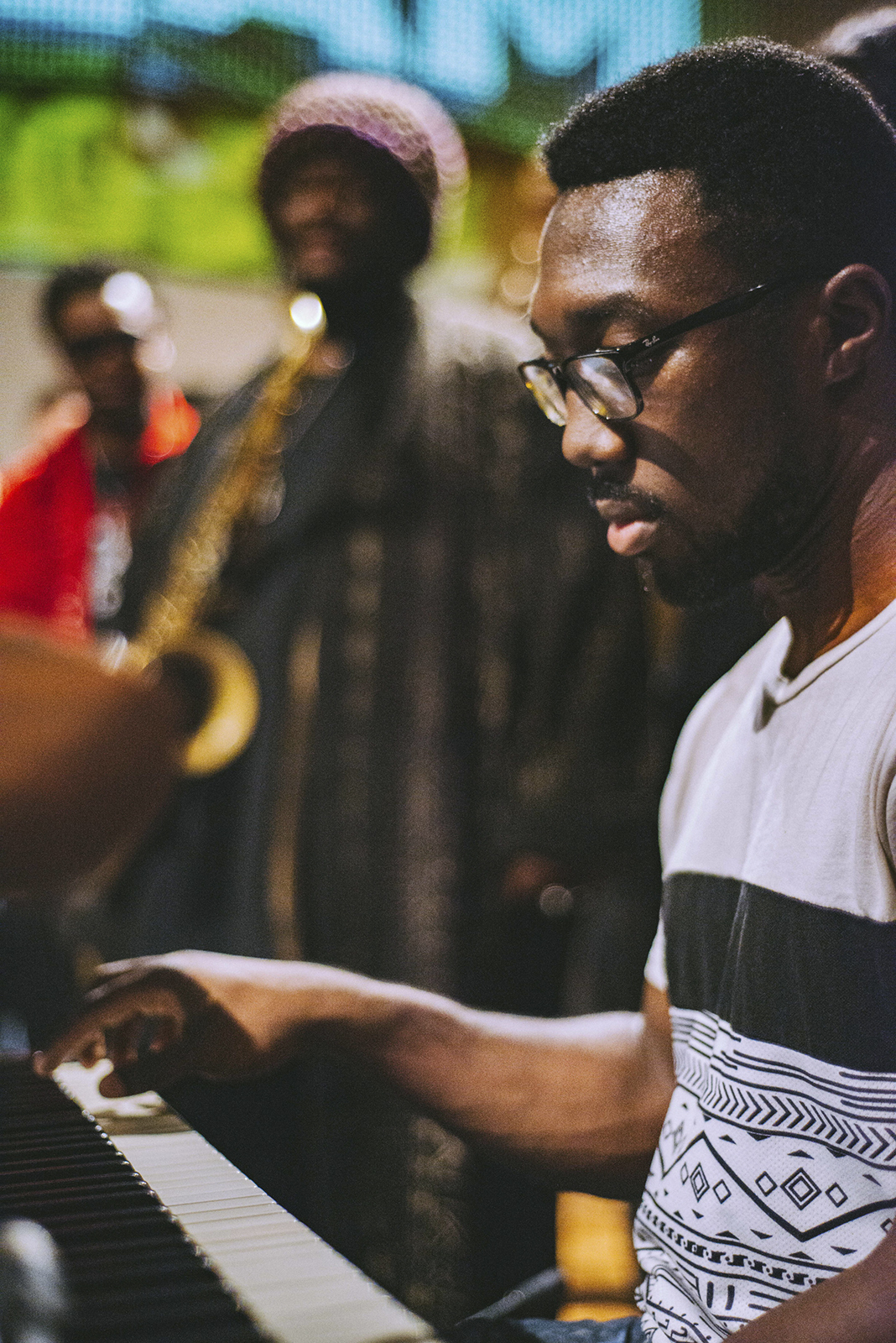Jazz quintet Banned uses music to explore meanings of liberation

Paul Cornish – a graduate student at the Herbie Hancock Institute of Jazz Performance at UCLA – said, while performances by his quintet, Banned, have been canceled, he’s hopeful future ventures will be continued sometime soon. (Courtesy of Rodjiana Munoz)
By Tara Oldenburg
April 29, 2020 1:53 p.m.
The name of Paul Cornish’s jazz quintet has taken on a whole new meaning with current restrictions on public gatherings.
The graduate student at the Herbie Hancock Institute of Jazz Performance at UCLA plays the jazz piano with his personal quintet, Banned, which has recently begun to sonically explore liberation in the form of removing self-inflicted constraints. Cornish said he was able to develop his musical voice through Banned, and eventually began composing performances based on the idea of liberating people from self-imposed restrictions.
“We have personal inhibitions or personal boundaries that we set on ourselves that we are capable of freeing ourselves from, and so I wanted my music to reflect that,” Cornish said. “(Liberation is the ability) to express ourselves, whatever that may look like for any specific person.”
[Related: Jazz student, ensemble strike a chord with expressive and experimental tunes]
The composition aims to free audience members by setting out a familiar melody and subsequently disrupting this melody by the end of the composition Cornish said. But creating music for the five performers posed a particular challenge to him, as he found it difficult to sonically describe feelings of liberation. Yet, Cornish said listeners react to music in different ways, so he has decided to collaborate with his fellow band members to define multiple meanings of liberation before performing the piece.
“I think the beauty of (the composition) is finding a middle ground … of everyone playing together and a finding way out of whatever we get ourselves into,” Cornish said. “I picked those specific players … (because they were) people who are open to listening to each other, finding solutions in the music no matter what happens, even though I’ve set a certain parameter or a certain idea to the music.”
Cornish said he collaborated easily with Lenard Simpson, an alto saxophonist in the Herbie Hancock Institute master’s program, who joined Banned as well. Simpson said the quintet’s chemistry was natural from its first rehearsal because of the complementary nature of their playing, so the group has since performed three times.
Banned had a fourth performance scheduled for April 15 at the Fowler Museum, which has now been postponed. Simpson said he feels the performance will be particularly necessary after COVID-19 social distancing requirements have been lifted, as it will touch on the importance of community as well as liberation from constraints that have been placed on physical interactions.
“Music is a communal thing that we all do together,” Simpson said. “When we play, there’s no difference between me and the audience, we’re in this together. … (We) come together and try to spread love and peace in our music.”
[Related: Student’s solo guitar EP to spin traditional jazz styles with playful style]
Emma Dayhuff, graduate student at the Herbie Hancock Institute and bassist for Banned, said she taught, performed, and composed her own jazz music at the institute before restrictions on performance were implemented. These activities and Banned’s performances have since been halted because of COVID-19, but Dayhuff said she still works on developing her composition skills by layering pre-recorded tracks from her bandmates into a cohesive song.
“It’s a neat process, but it takes out all the interaction … especially (for) me, (as a bassist) because everyone else can interact with what I’ve played but I cannot,” Dayhuff said. “So there’s not any back and forth.”
While performances have been limited, Cornish said he is developing his composition skills by taking music history classes and working on electronic tracks that don’t require in-person playing to accommodate for the quarantine lifestyle. Performances for Banned are not over, and Cornish said he is hopeful that future ventures will be able to continue sometime soon.
“The whole idea behind (Banned) … is that through the struggles of the people that came before us, we are able to have the freedoms we have today,” Cornish said. “Especially after all of this, we would all have a lot to say (on liberation).”

